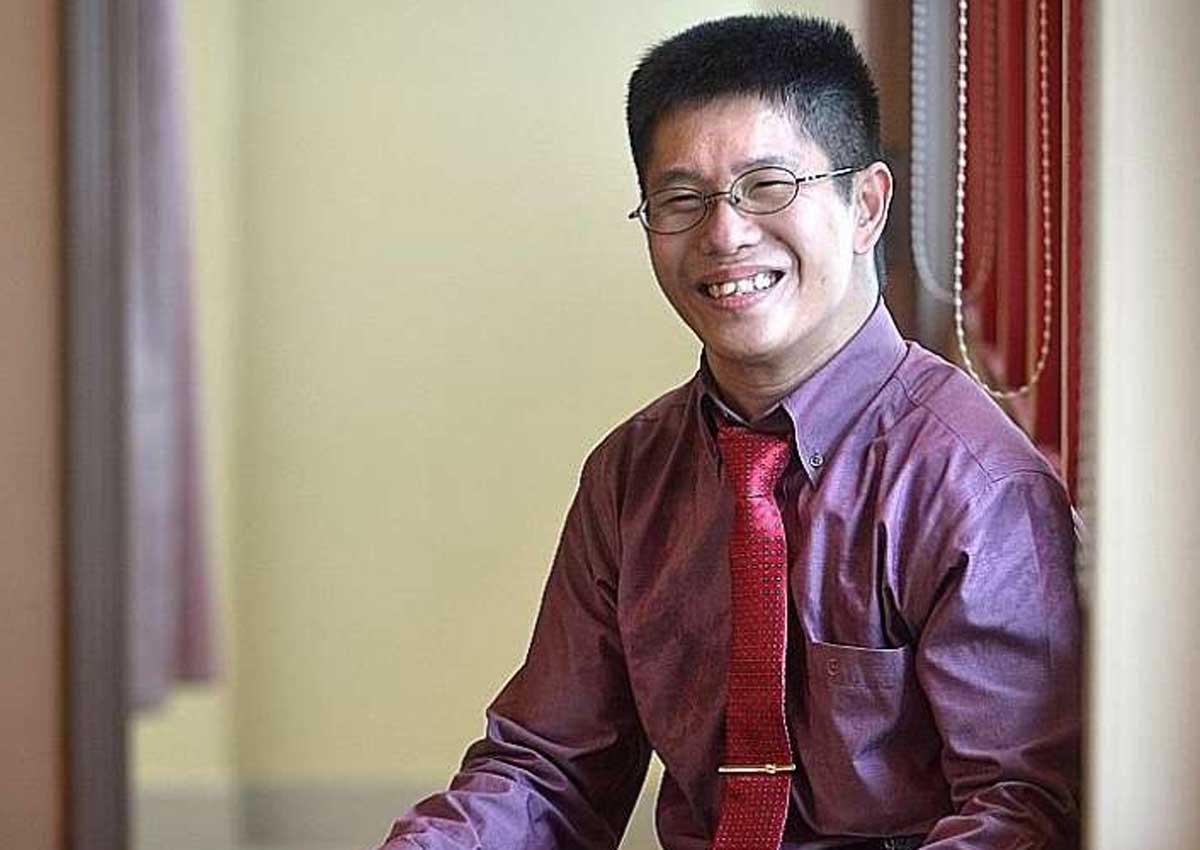He walks with a staggering gait towards the stage in a church.
The congregation goes quiet and all eyes are on him, but it is not because of the way he walks.
Instead, the 200 people at a Sunday service at Bethesda Church Bukit Arang (BCBA) are waiting to hear him deliver a sermon.
Pastor Michael Yeong, 46, was born with cerebral palsy due to a brain injury during his birth. It was a difficult delivery, and his twin brother died at birth.
Cerebral palsy mainly affects his legs, making it hard for him to balance, walk quickly or navigate stairs without support.
Despite his disability, he contributes to society, leading his church with other pastors, and helping families with marriage and parenting issues. Previously, he also helped youth at the church and volunteered as a school counsellor.
Last month, he was featured in a video by the National Council of Social Service at an event to celebrate the contributions of people with disabilities.
He told The Straits Times: “I can’t climb mountains, I can’t run, I can’t jump, but being a pastor, I think I still can do it.”
After his A levels, he worked in a travel agency for three years. He then worked at an Anglican church that he had attended since he was 10. He was a ministry staff member there for seven years, working mainly with youth in the church.
He also pursued a bachelor’s degree in theology and a Master of Divinity.
After graduating from the master’s course in 2004, he moved to BCBA and was its youth pastor until 2011, before taking on his current role as pastor in charge of discipleship and Christian education.
Mr Yeong, a father of two children aged eight and six, also heads the church’s family life ministry.
He said of his first role as a youth pastor: “I broke certain stereotypes – you don’t need to play basketball with kids to be a good youth pastor. What’s important is that you need to be able to connect with them.”
In fact, perhaps due to his disability and non-threatening appearance, some people told him that he has been an inspiration to youth and can connect well with those who are quiet or feel left out.
Still, he had to battle some negative perceptions.
For instance, after helping young people for some time at his former Anglican church, the senior pastor there asked him to stop working with youth.
“He told me he preferred someone more mobile. I was very disappointed and it took me two years to get over it,” said Mr Yeong.
“Looking back, it made me more in touch with my disability… It was a reality check – I may think I can still keep going, but others may not think so. I don’t blame the senior pastor. We’re still good friends.”
He believes that the situation exposed him to other church ministry work that did not involve youth. He now tries to ask himself if there is something to learn from a situation, no matter how adverse it is.
Exposure to and personal interaction with people with disabilities help to correct perceptions, he said. “As humans, we are usually fearful of things we do not know.”
Perceptions aside, he knows there are tasks he cannot do. For instance, he is likely to slow down church teams that go overseas for mission work.
“You need to be at peace with yourself,” he said. “I don’t have to bang my head against the wall, but for other things, I can break out of the box. There is a very huge difference between a wall and a box.”
He added: “Before correcting others’ perceptions of people with disabilities, it is also important for such people to have a good self-image and not be ashamed.”
Mr Yeong, who has two older sisters, said he benefited from two different parenting styles – his mother was more protective, while his father was more adventurous.
His mother, who died at age 79 in 2013, was a nurse before he was born but became a housewife to look after him. His father, 86, is a retired welder.
“I was raised with the perspective that everything is possible, within reasonable limits, until proven otherwise,” he said.
His adventures include learning to swim at the age of 29 years and riding pillion on a motorbike.
He believes God gave him the grit to cope with challenges and placed encouraging people in his life.
Assistant pastor Penny Lee, 64, who has known him for five years, said: “Whatever task he’s given, he’ll do it, unless it’s beyond his limits.”
Teacher Eudora Chuah, 25, who has attended the Bukit Arang church for three years, said: “When he becomes your friend, I don’t see him as a person with disability any more, but just as someone I meet in church.”
Reiterating that he is ordinary, Mr Yeong said: “Personal exposure to disabled people makes a difference.
“From a distance, you may have certain ideas of what a disabled person is like. But up close and personal, they’re actually quite normal.”

This article was first published on March 28, 2016.
Get a copy of The Straits Times or go to straitstimes.com for more stories.






